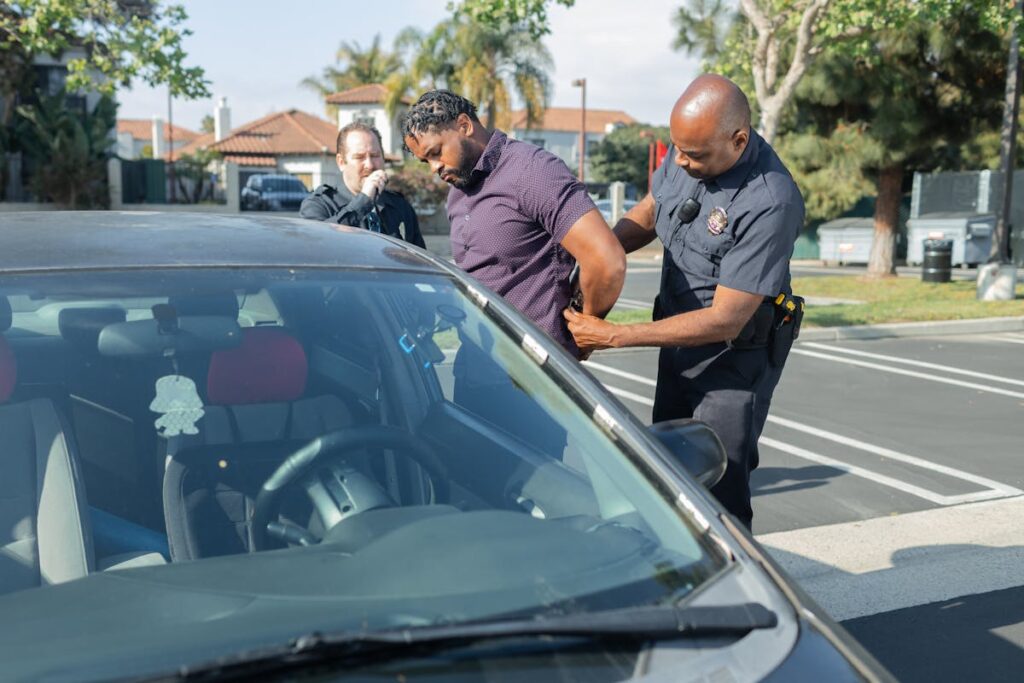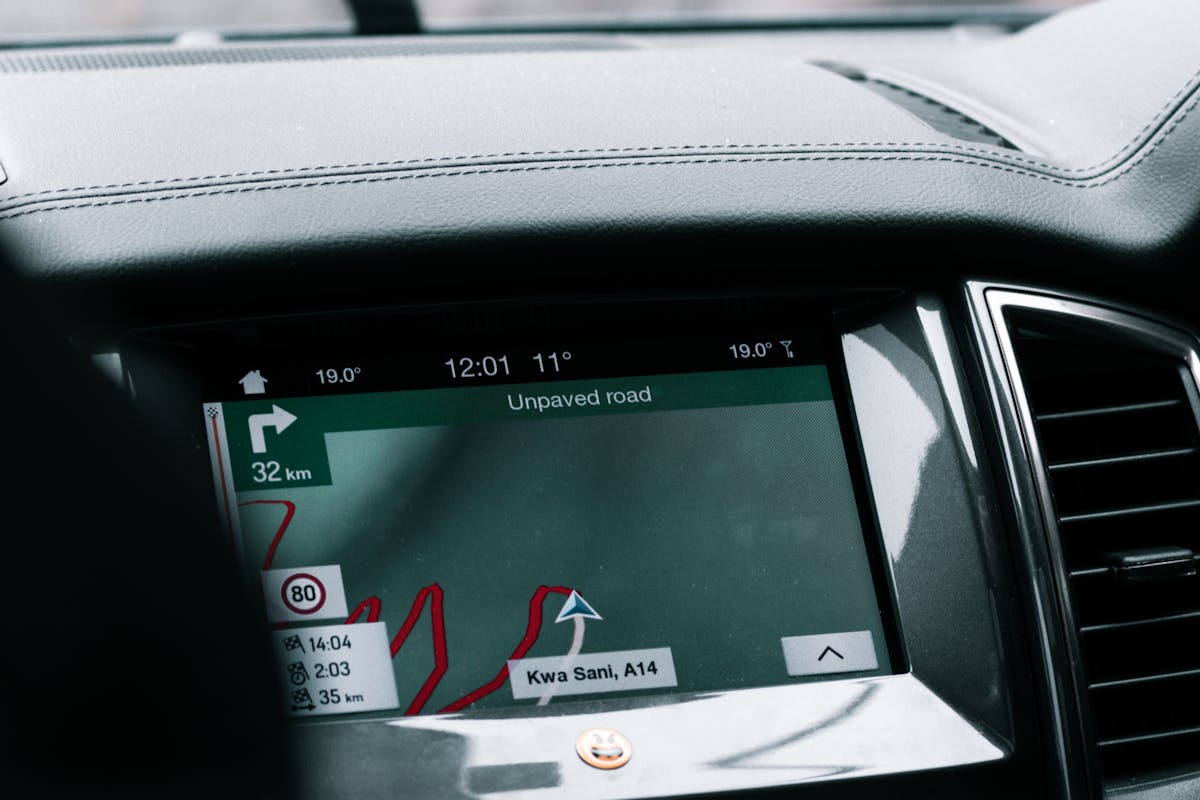Is Putting a Tracker on a Car Illegal in California
Under California Penal Code 637.7, it is illegal to install a tracking device on a vehicle without the owner’s consent. unauthorized tracking of vehicles is regarded as a violation of privacy rights, leading to severe legal consequences. Violators may face criminal charges or civil lawsuits. However, exceptions exist for law enforcement with a warrant, parents tracking their minor children, and financial institutions repossessing vehicles.
Understanding GPS Tracker Usage
| Scenario | Legal? | Explanation |
|---|---|---|
| Tracking your own car | ✅ Yes | Owners can track their own vehicles. |
| Tracking a spouse’s car | ❌ No | Requires consent unless co-owned. |
| Employers tracking company cars | ✅ Yes | Employees must be notified in writing. |
| Law enforcement tracking (with a warrant) | ✅ Yes | Requires a court-approved warrant. |
| Parents tracking a minor child | ✅ Yes | Allowed under parental rights. |
| Financial institutions tracking for repossession | ✅ Yes | Allowed for recovery of leased or financed vehicles. |
Maneuvering the intricate pathways of GPS tracker usage, one must first understand its legality and applications. GPS technology, initially designed for military use, has permeated society at large, enhancing our navigational capabilities and communication tools. However, its adoption is not without privacy concerns.
Its usage in tracking vehicles has sparked substantial debate over its legal and ethical implications. Before utilizing this technology, it’s prudent to understand that its application varies widely depending on geography, context and laws. For instance, law enforcement agencies are permitted to use GPS tracking in certain cases, whilst private citizens may face legal repercussions for unauthorized use.
The issue of privacy concerns is at the heart of this matter. As GPS technology becomes more sophisticated, more pervasive, and more accessible, privacy becomes more elusive. The tracking capability of this technology can be exploited to intrude into someone’s personal life, potentially breaching their right to privacy. Consequently, understanding its legal framework is vital.
What Are California’s Laws on Car Tracking
If you’re considering the use of a GPS tracker on a car in California, it is crucial to familiarize yourself with the state-specific laws governing its use. California laws, much like those in other states, are designed to protect individual rights to vehicle privacy, while balancing the need for security and legitimate use of tracking technology.
Under California law, specifically California Penal Code Section 637.7, it is a misdemeanor to install a tracking device on a vehicle without the owner’s consent. Additionally, the California Constitution Article I, Section 1 includes a right to privacy, which can extend to a person’s vehicle. This means unlawful tracking could potentially infringe upon this right, leading to criminal charges and civil lawsuits.
Unlawful tracking, much like evidence mishandling after an incident, highlights the importance of understanding your rights and responsibilities. In cases such as DUI-related car accidents, gathering evidence effectively is essential for ensuring justice and protecting legal rights.
Moreover, businesses that use tracking technology must comply with various laws. For example, should an employer wish to track a company vehicle, they must inform the employee in writing.
However, there are exceptions to these rules, such as in the case of law enforcement investigations, repossession efforts by financial institutions, or parental control over minor children. It is advisable to consult with a legal expert before using a car tracking device in California.
Do You Need Consent to Track a Car in California
In California, you generally need consent to track a car due to strict privacy and anti-surveillance laws. This provision is rooted in the state’s respect for personal privacy, and the legal system’s overarching commitment to protect this right.
Under California Penal Code 637.7 PC, using an electronic tracking device to monitor a vehicle’s location without the owner’s or authorized user’s consent is illegal, except for law enforcement with a warrant or specific exemptions like fleet vehicle tracking by employers.
The consent enforcement is strict on this matter. The person giving consent must be the registered owner of the vehicle. In cases where the car is jointly owned, consent from one owner is considered sufficient. However, the law explicitly forbids installing tracking devices on cars owned by others without their express approval.
Violating these consent requirements can result in fines and legal consequences. This strict enforcement underscores the seriousness with which California views the privacy implications of unauthorized car tracking. If you’re considering tracking a vehicle, ensure you have clear legal authorization to avoid potential criminal liability.
Exceptions to the Consent Rule
While the general rule in California necessitates consent for vehicle tracking, certain exceptions do exist. Particularly, these exceptions apply to law enforcement and parental rights to monitor a minor’s vehicle. The ensuing discussion will examine these exceptions in greater detail, shedding light on the circumstances under which consent may not be required.
Law Enforcement Exceptions
Under the umbrella of California law, there are certain exceptions to the consent rule when it comes to placing a tracker on a car, specifically for law enforcement agencies. These exceptions primarily revolve around matters of criminal investigations and are carefully regulated to prevent abuse of power.
Law enforcement agencies are granted the authority to use tracking devices under particular circumstances. This is often necessitated by the pursuit of justice, particularly in cases where surveillance is integral to investigations or where there is a risk to public safety. However, this does not mean the law enforcement agencies have free rein. They are required to adhere to certain protocols, including obtaining a warrant based on probable cause.
The use of tracking devices by law enforcement must be justified and proportional to the seriousness of the crime being investigated. Any deviation from this rule can lead to legal consequences, including the dismissal of the evidence obtained through the tracking device. This balance is essential to maintain the fine line between upholding the law and respecting individual privacy rights, ensuring that justice is served without infringing upon civil liberties.
Parental Monitoring Rights
Apart from law enforcement agencies, another exception to the consent rule in California applies to parents and their minor children. Under California law, parental rights allow parents to utilize monitoring tools, such as car trackers, to guarantee their child’s safety. This exception is grounded in the legal principle that parents have a fundamental right to oversee the welfare and behavior of their minor children.
This is not to say, however, that these rights are unlimited. They must be exercised with a legitimate interest in mind, such as protecting the child from harm or monitoring for dangerous behavior. Courts have maintained that this exception should not be used as a mechanism for harassment or invasion of privacy beyond what is necessary for a child’s safety.
Furthermore, the use of such monitoring tools should be proportionate and reasonable. For instance, placing a tracker on a teenager’s car may be deemed appropriate if there are valid concerns about reckless driving or substance abuse. However, using such devices for nonessential tracking could potentially infringe on the child’s right to privacy. As always, parents should consult with legal counsel to guarantee their actions align with statutory guidelines and judicial interpretations.

What Happens If You Illegally Track a Car in California
Facing significant legal repercussions, individuals who unlawfully place trackers on cars in California must understand the importance of their actions. The state has stringent privacy laws, and any perceived privacy violations can result in severe penalties. The unlawful consequences of such actions range from civil lawsuits to criminal charges.
A person found guilty of illegally tracking a vehicle in California may be held liable for invasion of privacy. This is considered a tort, and the victim may sue for damages. The court may award compensatory damages to cover emotional distress and any other harm suffered as a result of the violation. More severe cases may warrant punitive damages to discourage similar future violations. For instance, navigating the legal process after a car accident highlights how the complexity of California’s legal system applies in scenarios of personal injury or privacy infringement, emphasizing the importance of legal representation.
When the unlawful tracking is particularly egregious, it can result in criminal charges. The perpetrator may face stalking charges, which is a felony in California. Conviction can lead to imprisonment, hefty fines, or both. It’s significant to understand that these are not empty threats; these legal consequences are real and enforced.
Ethical Considerations of Car Tracking
Delving into the ethical considerations of car tracking, it’s crucial to understand that beyond legal implications, there’s a broader conversation about morality and respect for personal boundaries. The installation and use of tracking devices often raise significant privacy concerns, trust issues, and ethical dilemmas that go beyond the scope of law.
- Privacy Concerns: The use of car trackers can infringe on personal freedom, leading to an invasion of privacy. It’s important to balance the need for safety and surveillance with respect for individual privacy rights.
- Trust Issues: Unlawful tracking can lead to mistrust and suspicion, potentially damaging relationships. The impact on trust is a critical aspect of the ethical considerations.
- Consent Morality: The ethicality of tracking often hinges on consent. Using a tracker without informed consent is generally viewed as morally and ethically wrong.
- Responsibility and Data Ownership: The party installing the tracker is ethically obliged to handle the data responsibly. Ethical considerations include who owns the data, how it is used, and how it is protected.
Protecting Yourself From Illegal Tracking
As we continue our exploration into vehicle tracking in California, we now turn our attention to self-protection against illegal tracking. We will be examining the state’s laws surrounding unauthorized use of tracking devices, as well as effective countermeasures. The aim is to equip readers with the knowledge and tools necessary to safeguard against unlawful invasions of privacy.
Understanding California’s Tracking Laws
Maneuvering the complex landscape of California’s tracking laws is essential for anyone seeking to protect themselves from illegal tracking. These laws, shaped by privacy concerns and advancements in tracking technology, offer a framework to understand what constitutes legal and illegal activity.
- California Penal Code 637.7: This law prohibits the use of electronic tracking devices to determine the location or movement of a person.
- California Constitution’s Right to Privacy: A person’s right to privacy is explicitly recognized and protected in California’s constitution. This impacts how tracking technology can be legally used.
- California Invasion of Privacy Act: This act broadly prohibits eavesdropping and recording of confidential communication without all-party consent.
- California’s Stalking Laws: These laws indirectly impact tracking, as using a device to track someone without their consent can be considered a form of stalking.
Understanding these laws can help individuals protect their privacy rights in an era of evolving technology. However, tracking laws remain a complex and difficult terrain to navigate, highlighting the importance of professional legal advice in potential cases of illegal tracking.
Countermeasures Against Illegal Tracking
With the plethora of modern tracking technologies at one’s disposal, it is imperative to arm oneself with countermeasures against illegal tracking. The invasion of privacy can be a significant concern, especially in California, where tracking a vehicle without consent is considered illegal. Understanding the countermeasures options available can provide an added layer of security and peace of mind.
Countermeasures can range from simple to technologically advanced. A routine physical inspection of your vehicle can often reveal the presence of a tracking device. More sophisticated countermeasures include electronic sweeping, a process that detects and locates active and passive bugging devices. There are also signal jammers available in the market that can disrupt the GPS signal, rendering tracking devices useless.
Privacy protections are essential in our digitally connected world. In California, laws are in place to protect individuals from unwarranted tracking. However, taking proactive measures can further guarantee your privacy. Regularly updating your understanding of tracking technologies and countermeasures will help in maintaining your privacy.
In a nutshell, while the law provides some protection, it is important to be proactive and knowledgeable about potential threats and protective measures.
How to Detect a GPS Tracker on Your Car
- Perform a visual inspection – Check wheel wells, undercarriage, and the dashboard.
- Use a GPS bug detector – Devices that detect RF signals can help locate hidden trackers.
- Scan for unusual wires – Any unfamiliar wiring could indicate an unauthorized tracking device.
- Check your vehicle’s OBD-II port – Some trackers are plugged directly into the car’s diagnostic system.
- Seek professional help – A mechanic or security expert can perform a deep scan for trackers.
Frequently Asked Questions
What Is the Average Cost of a GPS Tracker for a Vehicle?
The average cost of a GPS tracker for a vehicle varies based on GPS tracker features and installation costs. Typically, the price range is between $50 to $200, not including potential subscription fees for additional services.
Can a GPS Tracker Damage a Cars Electrical System?
A GPS tracker, if properly installed, should not damage a car’s electrical system. However, improper installation or a faulty device can cause electrical interference, underscoring the importance of GPS tracker safety considerations.
How Can I Detect if There Is a Tracking Device on My Car?
To detect a tracking device on your car, conduct a thorough visual inspection, use a GPS detector, or seek professional help. Awareness of such privacy concerns is essential to safeguard your personal security.
What Are Some Reliable Brands for Car GPS Trackers?
Reliable brands for car GPS trackers include Garmin, SpyTec, and Vyncs. These brands offer various features like real-time tracking, geofence alerts, and trip histories, enhancing vehicle security and providing significant benefits to the user.
Are There Alternatives to GPS Trackers for Monitoring a Vehicles Location?
Yes, alternatives to GPS trackers for vehicle monitoring exist. These include smartphone apps, onboard diagnostics devices, and radio frequency identification tags. Each offers unique advantages and should be considered based on individual vehicle monitoring requirements.






